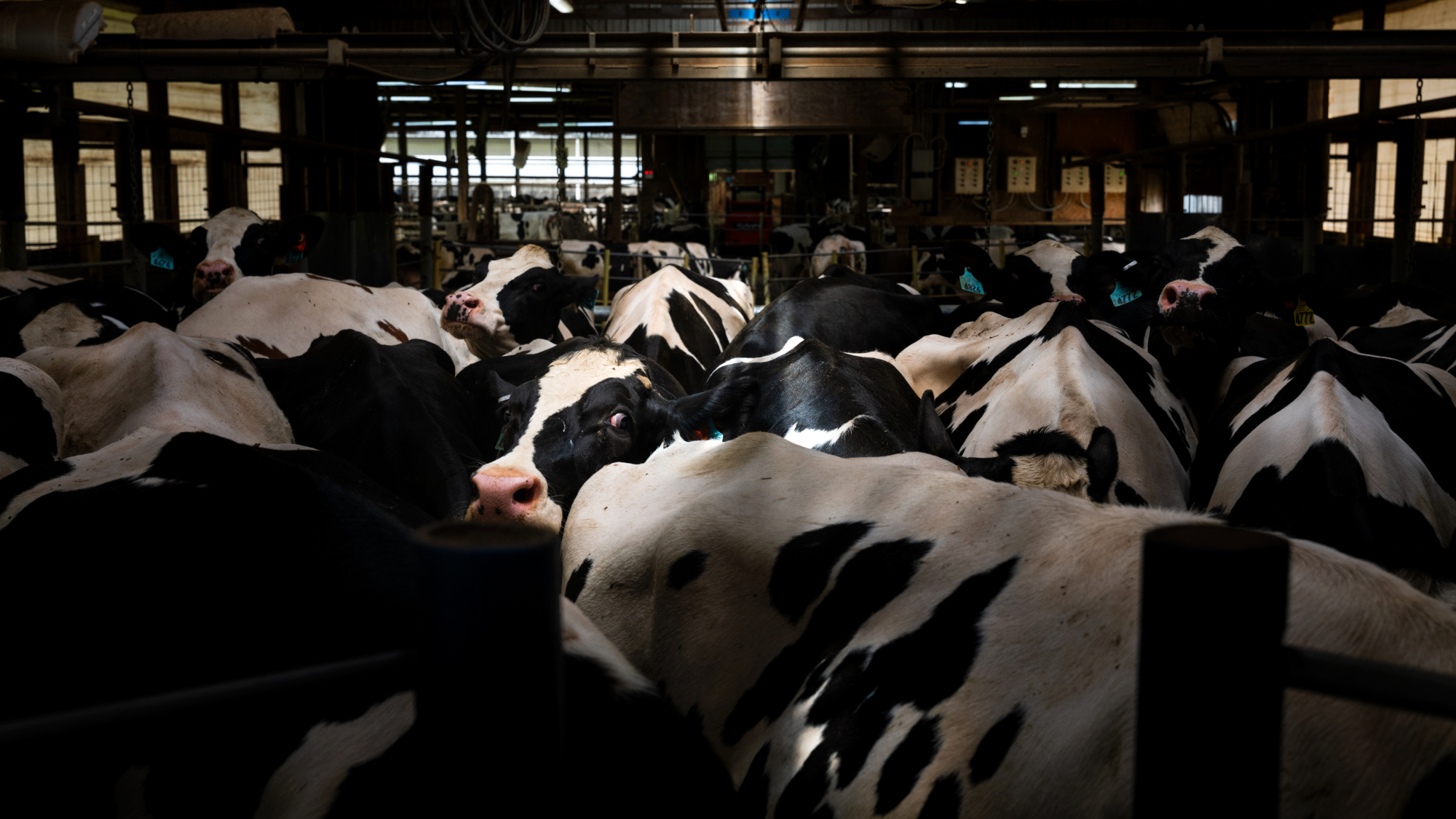Bird flu one mutuation from human threat, study finds
A Scripps Research Institute study found one genetic tweak of the virus could enable its spread among people


A free daily email with the biggest news stories of the day – and the best features from TheWeek.com
You are now subscribed
Your newsletter sign-up was successful
What happened
A single genetic mutation could turn the H5N1 avian flu virus infecting U.S. dairy herds into a version transmissible between humans, researchers at Scripps Research Institute reported Thursday in the journal Science.
Who said what
The H5N1 strain that started sweeping through dairy farms in March has infected 58 people working with infected cattle and poultry, the CDC said, though only with mild symptoms and no known human-to-human transmission. "All that can change if the virus mutates in the wrong way," The Washington Post said. The Scripps team found that one genetic tweak could enable the hemagglutinin proteins, or spikes, on the virus to latch onto and penetrate human respiratory cells, allowing viral spread among people.
What next?
The study is "significant, but it shouldn't cause alarm," Emory University virologist Anice Lowen said to NPR. There are likely "other changes a virus would need to go through to efficiently transmit in humans and cause a pandemic," though the massive "potential human exposure out there" does pose a "great risk" of such mutation. "If there is a bird flu pandemic soon," columnist Zeynep Tufekci said last week in The New York Times, "it will be among the most foreseeable catastrophes in history."
The Week
Escape your echo chamber. Get the facts behind the news, plus analysis from multiple perspectives.

Sign up for The Week's Free Newsletters
From our morning news briefing to a weekly Good News Newsletter, get the best of The Week delivered directly to your inbox.
From our morning news briefing to a weekly Good News Newsletter, get the best of The Week delivered directly to your inbox.
A free daily email with the biggest news stories of the day – and the best features from TheWeek.com
Peter has worked as a news and culture writer and editor at The Week since the site's launch in 2008. He covers politics, world affairs, religion and cultural currents. His journalism career began as a copy editor at a financial newswire and has included editorial positions at The New York Times Magazine, Facts on File, and Oregon State University.
-
 The Olympic timekeepers keeping the Games on track
The Olympic timekeepers keeping the Games on trackUnder the Radar Swiss watchmaking giant Omega has been at the finish line of every Olympic Games for nearly 100 years
-
 Will increasing tensions with Iran boil over into war?
Will increasing tensions with Iran boil over into war?Today’s Big Question President Donald Trump has recently been threatening the country
-
 Corruption: The spy sheikh and the president
Corruption: The spy sheikh and the presidentFeature Trump is at the center of another scandal
-
 Scientists are worried about amoebas
Scientists are worried about amoebasUnder the radar Small and very mighty
-
 Metal-based compounds may be the future of antibiotics
Metal-based compounds may be the future of antibioticsUnder the radar Robots can help develop them
-
 Trump HHS slashes advised child vaccinations
Trump HHS slashes advised child vaccinationsSpeed Read In a widely condemned move, the CDC will now recommend that children get vaccinated against 11 communicable diseases, not 17
-
 Stopping GLP-1s raises complicated questions for pregnancy
Stopping GLP-1s raises complicated questions for pregnancyThe Explainer Stopping the medication could be risky during pregnancy, but there is more to the story to be uncovered
-
 Tips for surviving loneliness during the holiday season — with or without people
Tips for surviving loneliness during the holiday season — with or without peoplethe week recommends Solitude is different from loneliness
-
 More women are using more testosterone despite limited research
More women are using more testosterone despite limited researchThe explainer There is no FDA-approved testosterone product for women
-
 Peanut allergies have plummeted in children
Peanut allergies have plummeted in childrenUnder the radar Early introduction could be an effective prevention method
-
 Climate change is getting under our skin
Climate change is getting under our skinUnder the radar Skin conditions are worsening because of warming temperatures
